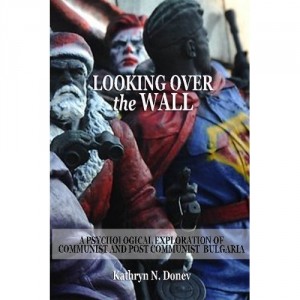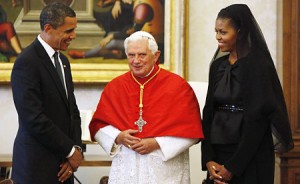Identity and diversity: The Future of Europe
This panel will bring together European political foundations, civil society representatives, academics and political actors. ENoP’s long-standing experience as a bridge-builder between civil society and political actors will provide for an enriching discussion, representing various standpoints and visions on a stronger and more integrated Europe.
As Europe marks the 60th anniversary of the Treaty of Rome, it is time for the European Union to address its major challenges and shape a common vision for its future. Following Juncker’s proposal for a ‘’multi-speed’’ Europe after Brexit and the conclusions of the Rome summit, this interactive session aims at contributing to the debate on Europe’s future. Our speakers, from various EU countries and backgrounds, would highlight the main challenges that they see ahead of the EU, while exploring different solutions as to how to contribute to a deepened integration, while enhancing political, social and economic ties.
Moderation: Arnold Kammel – Director of the Austrian Institute for European and Security Policy and Programme Director for International Relations of the Political Academy PolAk – Austria, European Network of Political Foundations (ENoP), Austria
Speakers:
Antonis Klapsis – Adjunct Lecturer at Neapolis University Pafos – Cyprus, European Network of Political Foundations (ENoP), Greece
Panayiotis Kakolyris – Journalist and Social Media Expert, European Network of Political Foundations (ENoP), Greece
Nikolay Paunov – Chairperson, Liberal Politological Institute (LPI), Bulgaria
Doris Pack – President, EPP Women, Germany
National Identity and Collective Consciousness of the Bulgarian Community
 In understanding the history of the advancements in psychotherapy in Bulgaria and the foundations of the country as a whole, we gain a glimpse into the national identity and collective consciousness of a community; one which was formed by a strong people; a people that strive for religious freedom and the quest for knowledge; one that overcame oppression, trial and, hardship.
In understanding the history of the advancements in psychotherapy in Bulgaria and the foundations of the country as a whole, we gain a glimpse into the national identity and collective consciousness of a community; one which was formed by a strong people; a people that strive for religious freedom and the quest for knowledge; one that overcame oppression, trial and, hardship.
For many Bulgarians, communism was not simply a set of ideological directives, but it permeated nearly all spheres of social life. Communism and the lasting effects on its population is not one that is comfortable to recollect. It is neither something that is easy to understand and we may never fully comprehend the post communist mentality. And perhaps we should question those who make such claim.
However, if left ignored, we ignore an undeniable part of history and identity. The danger in not recollecting is that we may in doing so, ignore the possibility for change. Recognition is the first step toward change and empathy. It is only via the shoes of empathy that we can walk in the paths of genuinely comprehending the post communistic mentality and another culture.
Excepts taken from “LOOKING OVER the WALL”
A Psychological Exploration of Communist and Post Communist Bulgaria
Copyright © April 12, 2012 by Kathryn N. Donev
© 2012, Spasen Publishers, a division of www.cupandcross.com
RELATED ARTICLES:
[ ] Obama, Marxism and Pentecostal Identity
[ ] A Psychological Exploration of Communist and Post Communist Bulgaria
[ ] Insight into Communist Agent Techniques in Bulgaria
[ ] The Bulgarian Evangelical Believer and Communistic Consequences
[ ] Distinct Historical Memories of the Bulgarian Mindset
[ ] National Identity and Collective Consciousness of the Bulgarian Community
Obama, Marxism and Pentecostal Identity
 Time and time again in the past several years, while ministering in churches across the United States, friends and partners ask us about our opinion on the political situation at home and around the world. Many of them ask the direct question of America becoming more and more socialist-like. Our response is that while people have the right to own a business, there cannot be communism, but this barely scratches the surface.
Time and time again in the past several years, while ministering in churches across the United States, friends and partners ask us about our opinion on the political situation at home and around the world. Many of them ask the direct question of America becoming more and more socialist-like. Our response is that while people have the right to own a business, there cannot be communism, but this barely scratches the surface.
“Looking over the Wall” answers this and many other important questions about the current global reality from a very distinct Pentecostal and the same time post communist point of view. Yet, the text does it in a way, which can actually relate to popular American culture and current economic reality. The book provides Christian answers as of what defines our identity and makes us human – a right communism strips from the persona, the family and the church without much regard of the consequences that follow.
But this drastic dehumanization has an almost irreversible effect on the human psyche – a slavery mentality that penetrates the very heart of men and women and leaves forever its mark of fear, depression and insecurity. The book traces how Pentecostalism as faith and ideology has the power to deliver post communist communities from the grasp of oppressive governments and transform them into a socially relevant culture changing force. At the same time, it remains a warning to theologians who dare to flirt with Marxist idealism being fulfilled in the context of the New Testament ecclesia. And rightfully so!
The book is a must read for any and all who are ministering or planning to minister in a post communist culture or among post communist groups regardless of their geographical locale. For the principles it shows are valid for post community mentality everywhere. Preview and purchase your copy directly at Amazon.com
Creating Web Identity for Ministry
For the past 20 years, our team has envisioned and created web communities around the globe, as a part of our ministry and in helping churches and Christian organizations build their internet brand and web identity. Here are just several examples:
- Missionary video sharing website (WorldMissions.TV)
- Social network community for the Church of God (ourCOG.org)
- Networking platform for Biker Churches (BikerChurch.US)
- Bulgarian Evangelical Church of God in Chicago (BGnewLIFE.com)
- LaFrance Church of God (LaFranceCOG.com)
- Bulgarian Christian Church in Las Vegas (LasVegasChurch.TV)
Furthermore, we have contributed to various churches and organizations through:
- Hosting our annual X Event for youth exploring the role of internet for youth and youth ministries in the 21st century
- Lecturing on WebMinistry 2.0 for Churches at the Leadership Development Institute
- Guest speaking at the BibleTech conference organized by Logos Bible Software
- Publications on web branding for churches and non-profit organizations
In the country of Bulgaria alone, our team envisioned and created the largest Bible internet community with:
- Dedicated Bible Study website (Bibliata.com)
- Christian video sharing community (Bibliata.TV)
- Bulgarian Christian social network (Bibliata.net)
- Bulgarian Video Bible (Bibliata.mobi)
See also how we help churches grow through:
Religious Praxis without Religious Identity
 Some people who do not identify with a religion, nevertheless, practice some form of religion
Some people who do not identify with a religion, nevertheless, practice some form of religion
Sizable numbers of those who do not affiliate psychologically with any religion are, nevertheless, occasional or unsettled practitioners. As such, they might sometimes attend religious services, have previously identified religiously as adults, or expect to take up a religion sometime in the future. A more complete religious profiling requires additional information about religious beliefs and behavior.
Gallup Polls, which use a differently worded question emphasizing “religious preference,” seem to indicate less change over the same time period as well as a lower current proportion of “no religion” / “none” responses. Unfortunately, Gallup changed the question wording several times, complicating analysis. Since mid-2000, they included the “if any” phrasing in their primary version of the question: “What, if any, is your religious preference — Protestant, Roman Catholic, Jewish, Mormon, Muslim, or an Orthodox religion such as Greek or Russian Orthodox?”
This study is an excerpt from the larger report on The Decline of Religious Identity in the United States by Sid Groeneman & Gary Tobin published in 2004 via the Institute for Jewish & Community Research (http://jewishresearch.or)







